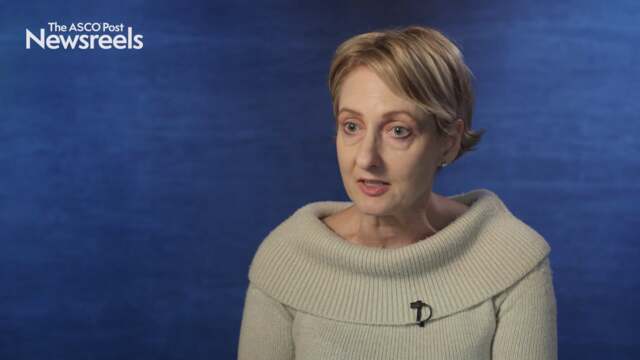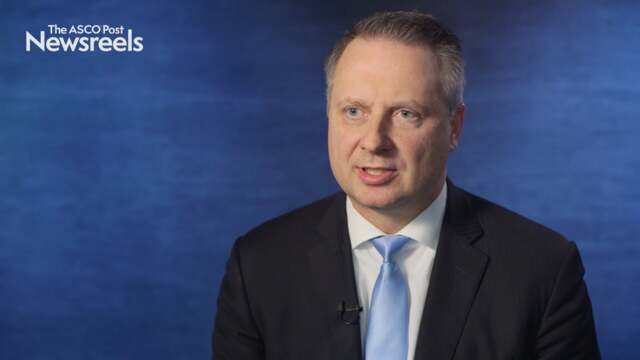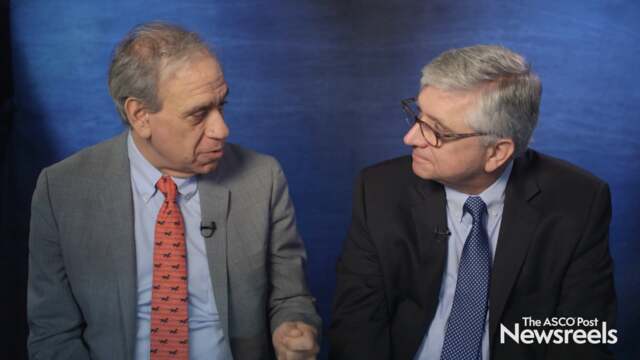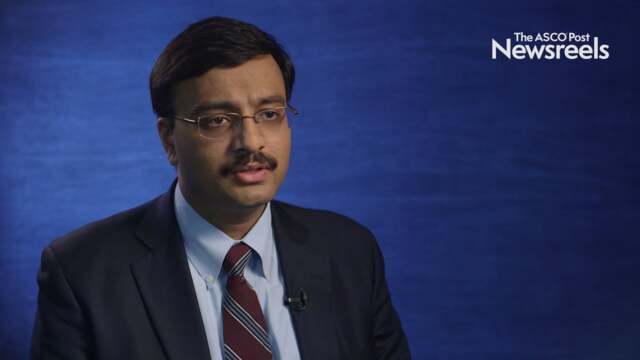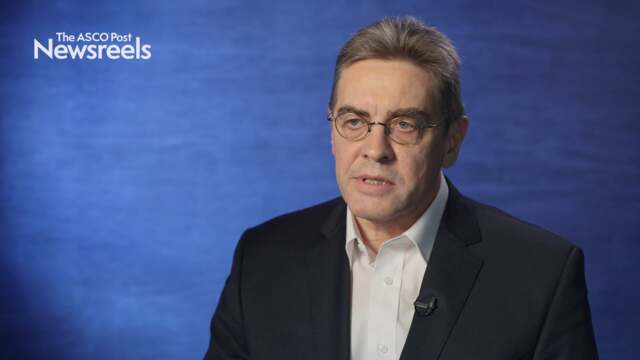Tanaya Shree, MD, PhD, on DLBCL Survivors: Long-Term Effects
2017 ASH Annual Meeting
Tanaya Shree, MD, PhD, of Stanford University Medical Center, discusses findings from a large population-based study suggesting lasting effects of lymphoma and its treatments: an increased incidence of autoimmune and infectious diseases (Abstract 198).
Laurie H. Sehn, MD, MPH, of the British Columbia Cancer Agency and University of British Columbia, discusses long-term results of PET-guided radiation therapy in patients with advanced-stage diffuse large B-cell lymphoma treated with R-CHOP (Abstract 823).
Andrew M. Evens, DO, of Tufts University, discusses findings on the effectiveness of DLBCL-based therapy for patients whose disease fell between diffuse large B-cell and classical Hodgkin lymphoma (Abstract 375).
Andrew D. Zelenetz, MD, PhD, of Memorial Sloan Kettering Cancer Center, and Stephen J. Schuster, MD, of the Abramson Cancer Center, University of Pennsylvania, discuss phase II findings on tisagenlecleucel in adult patients with relapsed or refractory diffuse large B-cell lymphoma (Abstract 577).
Nitin Jain, MD, of The University of Texas MD Anderson Cancer Center, discusses phase II study results on combined venetoclax and ibrutinib for patients with previously untreated high-risk and relapsed/refractory chronic lymphocytic leukemia (Abstract 429).
Michael Unterhalt, MD, of the University Hospital Grosshadern, discusses study findings on rituximab maintenance after first-line immunochemotherapy among older patients who are not candidates for autologous stem cell transplantation (Abstract 153).
